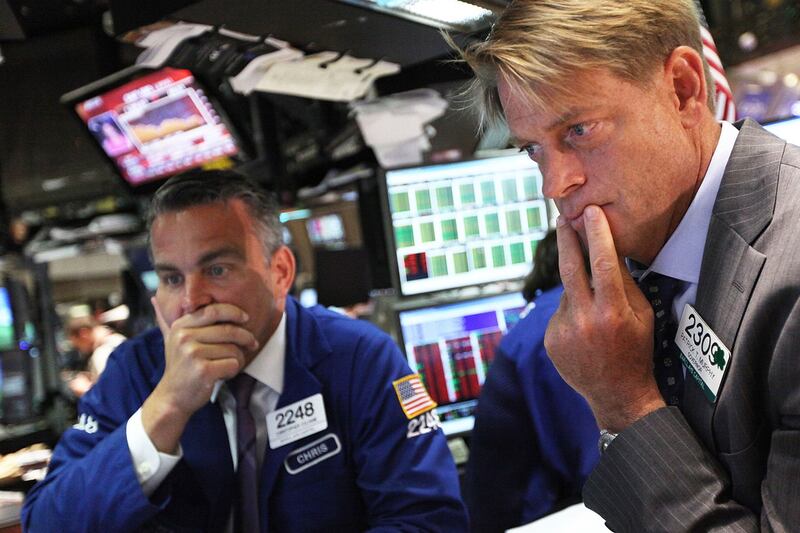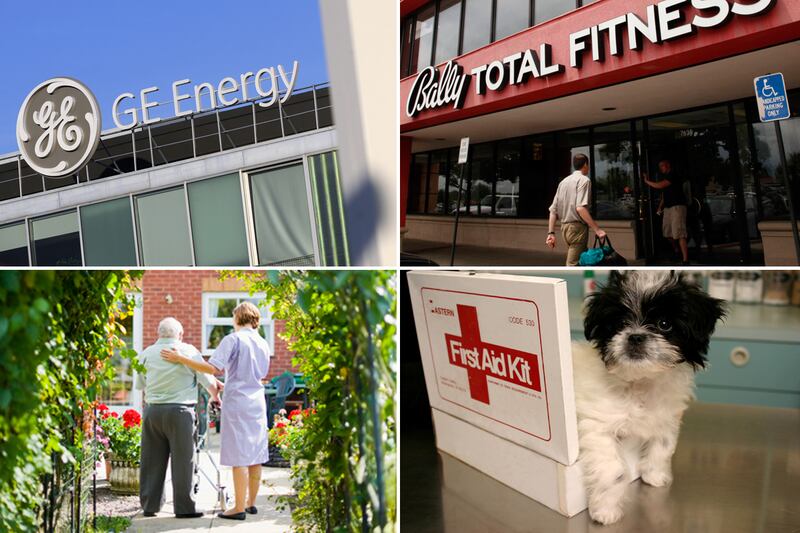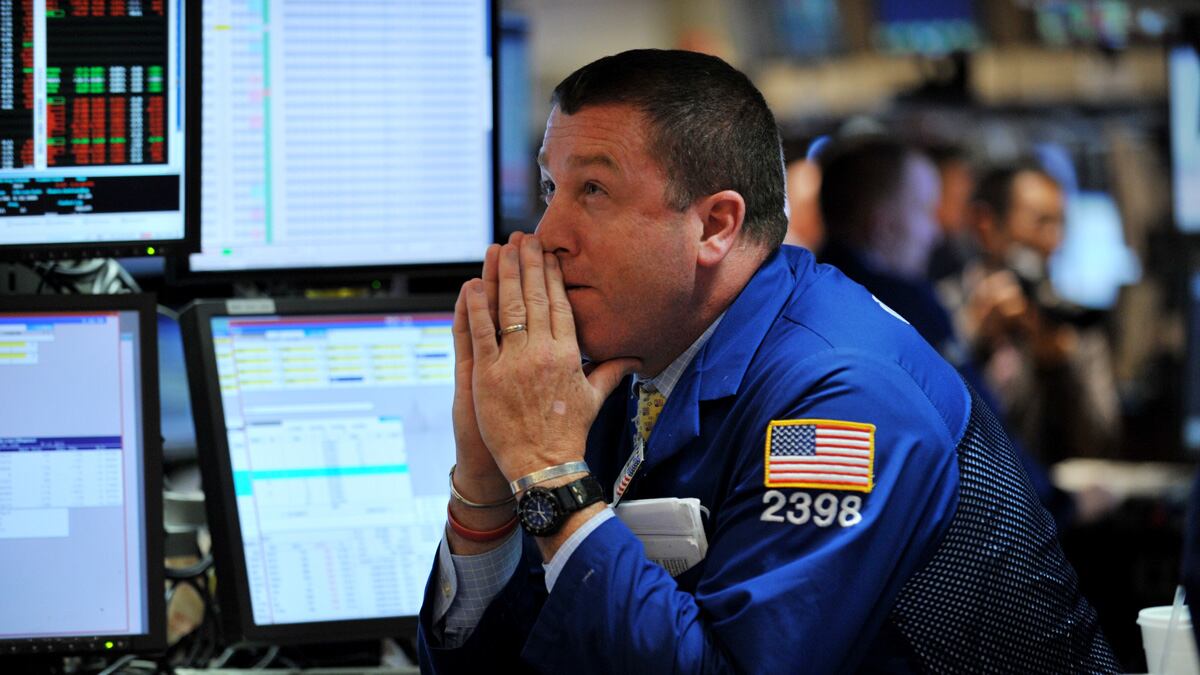Stocks Close Friday With Mixed Results
U.S. stocks finished with mixed gains and losses on Friday, as investors responded to progress in today's jobs report and in the eurozone's debt crisis. The Dow rose 61 points as investors learned that Italy will speed up austerity measures. Prime Minister Silvio Berlusconi pledged that Italy would balance its budget by 2013, one year earlier than originally planned. "The somewhat stabilizing news out of Europe is allowing us to bounce from very oversold levels," said the co-head of trading at First New York Securities. But the broader S&P 500 closed flat, and the Nasdaq finished down nearly 24 points.
World’s Richest Man Loses $8 Billion in Four Days
ADVERTISEMENT
Mexican billionaire Carlos Slim, the world’s richest man, lost $8 billion over the last four days as Mexico’s IPC index dropped 7.4 percent. The peso also dipped 2.5 percent against the dollar amid concerns that the struggling U.S. economy will affect demand for assets in Mexico. Slim, 71, saw his stock portfolio, which is valued at roughly $63 billion, drop 11 percent since July 29. That’s more than the 7.1 decrease in the Standard & Poor’s 500 Index. Three of his companies left the IPC, making matters worse for the billionaire.

________________________________
Wall Street Slumps AgainDespite an initial flurry of gains following a better-than-expected jobs report, Wall Street remained in a slump on Friday after Thursday’s losses. The Dow Jones remained mostly flat, tumbling from a triple-digit gain at the opening bell on continuing fears of a double-dip recession in the U.S. and a bleak future for the euro zone. “There’s still a recovery but it’s teetering on the edge,” said Robin Marshall, a London investment manager. The jobs gain of 117,000, while stronger than expected, was not enough to put a serious dent in the unemployment rate, which still stands above 9 percent.

_______________________________
The U.S. unemployment rate budged slightly in July, dipping down to 9.1 percent, according to the government jobs report released Friday morning. Overall, 117,000 jobs were added, the best growth since April and significantly higher than expectations, which ranged around 75,000. Reports for May and June were also revised; June’s figures, initially set at 18,000, surged upward to 46,000. The better-than-expected news sent Wall Street ticking upward, with futures gaining by 1.2 percent immediately following the announcement and the Dow Jones Industrial Average was up 150 points on opening.
Among the less hopeful findings: The employment-population ratio fell to 58.1 percent, the lowest number on record since 1983. Government payrolls also dragged down growth, falling by 37,000 amid state and local budget cuts.
_______________________________
Following the Dow's massive plunge on Thursday, its worst drop in two years, global markets continued to dive around the world. Hong Kong's Hang Seng Index dropped 4.3 percent, while Japan's Nikkei fell 3.7 percent. The crash had continued through early trading in Europe, where London's FTSE and Frankfurt's DAX were down amid fears of a growing debt crisis in the euro zone. But a solid U.S. jobs report sent most European indexes rebounding.

By Zachary Karabell Markets crashed Thursday because Europe looks sick and the U.S. looks feeble. The Daily Beast’s Zachary Karabell on why it’s developing countries that will carry us out of this mess.
Carnage on Wall Street came fast and swift Thursday, triggered in part by a raft of European selling on the heels of less-than-reassuring remarks by the president of the European Central Bank. But that alone can’t account for a day that saw stocks down almost 5 percent—the worst day since the nasty days of February 2009.
As someone who manages money for clients, I can say that I wasn’t fully prepared for such a drop, or at least not in one day. I have been cautious for some time, as sentiment has turned negative about everything from the global economy to the fate of the United States in post-debt-deal land. Even two-plus years after the meltdown, the psyche of the financial class remains fragile, and Thursday showed that what happens anywhere in the world will ultimately reverberate everywhere in the world. Thursday's selling was indiscriminate, programmatic, and undoubtedly made a few people big money as the vast majority swallowed losses.
______________________________
Ezra Klein: We’ve Stabilized Into Crisis The Dow Jones responded to the debt-ceiling deal by collapsing, the latest sign that Washington doesn't control the economy, or even understand it very well, says Ezra Klein, the Washington Post blogger (and contributor to Newsweek and The Daily Beast.) “A dramatic gap has opened between the economy as Washington sees it—and wants to intervene in it—and the economy that exists,” he writes. The economy is more stable now than two years ago, but unemployment is still high and growth is low, hindered by global commodity prices, consumer deleveraging, flagging demand, and other forces that don't make it into the national debate. “Rather than recovering from the crisis, it is almost as if we have settled into it.”
_______________________________
Felix Salmon: Don’t Believe the Hype
Don’t believe people when they say markets are crashing because of “fears of a double-dip recession,” says Reuters' Felix Salmon. “When vague ‘fears’ are cited as the prime reason for a sell-off, you can be sure that in fact there’s no reason at all.” Sometimes markets do volatile things. The sell-off might not even be that bad a thing. Any worries about the United States’ credit worthiness are gone, with 10-year bonds yielding less than 2.5 percent, and falling interest rates are good for debtors.





